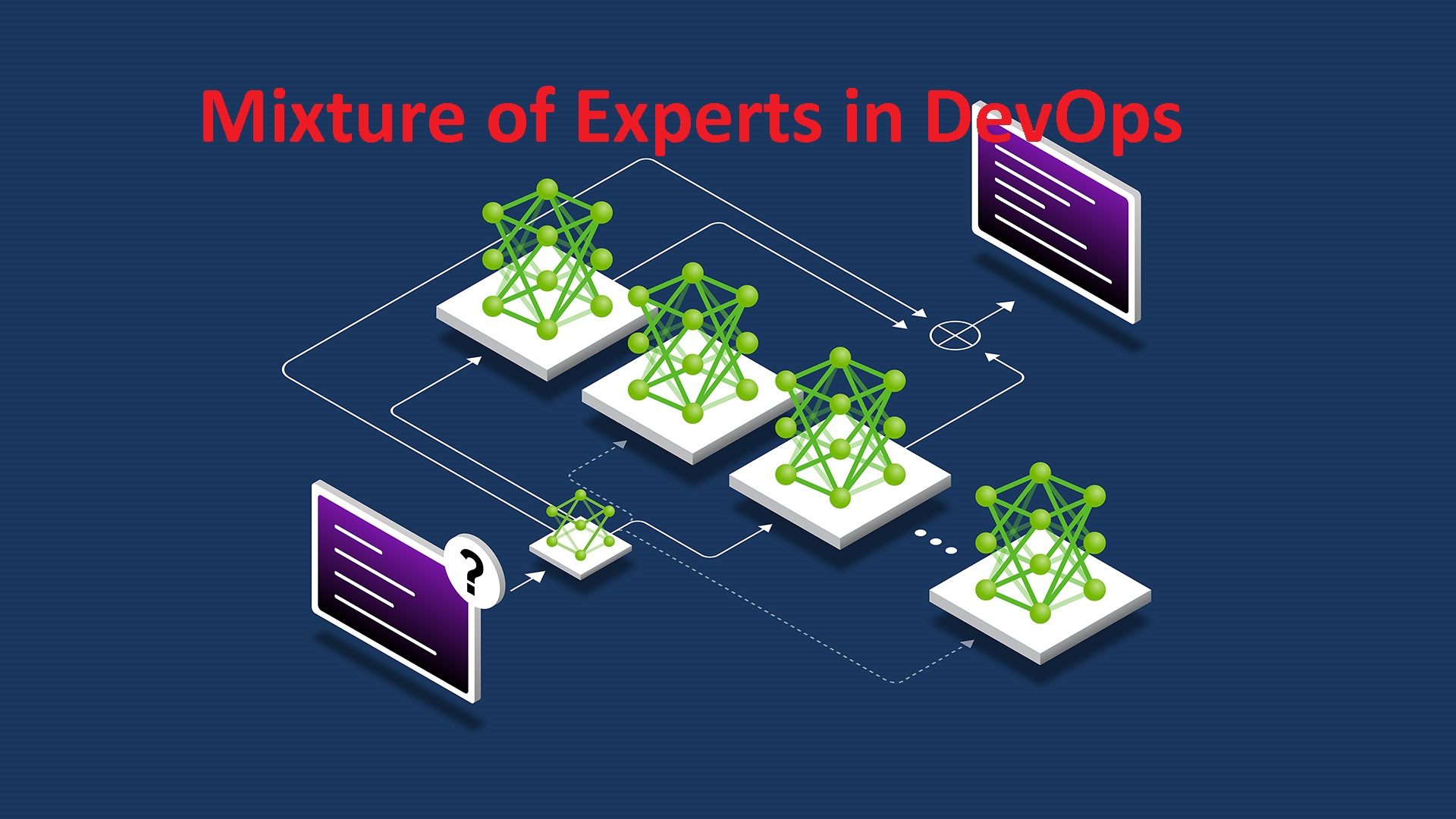Mixture of Experts (MoE) in DevOps is an emerging concept that combines the strengths of specialized expertise with the collaborative and automated nature of DevOps practices. This approach leverages the idea of assembling a diverse team of experts, each contributing their unique skills to solve complex problems, while ensuring seamless integration and delivery through DevOps principles. In this blog, we’ll explore how the Mixture of Experts model is transforming DevOps, its benefits, challenges, and practical applications in modern software development.
Table of Contents
- What is Mixture of Experts (MoE)?
- The Role of MoE in DevOps
- Benefits of Combining MoE with DevOps
- Challenges in Implementing MoE in DevOps
- Real-World Applications of MoE in DevOps
- Best Practices for Integrating MoE into DevOps
- Conclusion
1. What is Mixture of Experts (MoE)?
The Mixture of Experts (MoE) model is a framework where multiple specialized professionals, or “experts,” collaborate to solve complex problems. Each expert brings their unique knowledge and skills to the table, ensuring that every aspect of a challenge is addressed with precision. Originally rooted in machine learning, the MoE concept has now found its way into various fields, including software development and DevOps.
In the context of DevOps, MoE emphasizes the importance of assembling a team of specialists—such as developers, system administrators, security experts, and QA engineers—to work together in an integrated and automated environment. This approach ensures that every stage of the software development lifecycle is handled by someone with deep expertise in that area.
2. The Role of MoE in DevOps
DevOps is all about breaking down silos and fostering collaboration between development and operations teams. However, as systems grow more complex, the need for specialized knowledge becomes critical. This is where the Mixture of Experts model comes into play.
By integrating MoE into DevOps, organizations can:
- Ensure that each task is handled by the most qualified individual or team.
- Improve problem-solving efficiency by leveraging diverse skill sets.
- Maintain high-quality standards across all stages of development and deployment.
For example, a security expert can focus on implementing robust security measures, while a deployment specialist ensures smooth and error-free releases. This division of labor, combined with DevOps automation, leads to faster and more reliable outcomes.
3. Benefits of Combining MoE with DevOps
The integration of Mixture of Experts into DevOps offers several advantages:
- Enhanced Problem-Solving: With experts handling specific areas, complex issues are resolved more efficiently.
- Improved Quality: Specialized knowledge ensures that each component of the system meets the highest standards.
- Faster Delivery: Automation in DevOps, combined with expert input, accelerates the development and deployment process.
- Scalability: MoE allows organizations to scale their operations by adding experts as needed, without disrupting workflows.
- Innovation: Diverse perspectives lead to creative solutions and innovative approaches to challenges.
4. Challenges in Implementing MoE in DevOps
While the Mixture of Experts model offers numerous benefits, it also comes with its own set of challenges:
- Coordination Overhead: Managing a team of experts requires effective communication and coordination.
- Resource Allocation: Hiring and retaining top talent can be costly and time-consuming.
- Integration with DevOps Tools: Ensuring that all experts are proficient with the same DevOps tools and practices can be challenging.
- Potential for Silos: Without proper collaboration, experts may work in isolation, defeating the purpose of DevOps.
To overcome these challenges, organizations must invest in robust collaboration tools, continuous training, and a strong DevOps culture.
5. Real-World Applications of MoE in DevOps
The Mixture of Experts model is already being applied in various industries to enhance DevOps practices. Here are a few examples:
- Cloud Migration: A team of cloud architects, network engineers, and security experts collaborate to ensure a smooth and secure migration to the cloud.
- Continuous Integration/Continuous Deployment (CI/CD): Developers, QA engineers, and operations specialists work together to automate and optimize the CI/CD pipeline.
- Incident Management: During a system outage, experts in monitoring, debugging, and infrastructure quickly identify and resolve the issue.
These examples highlight how MoE can drive efficiency and reliability in DevOps workflows.
6. Best Practices for Integrating MoE into DevOps
To successfully implement the Mixture of Experts model in DevOps, consider the following best practices:
- Foster a Collaborative Culture: Encourage open communication and knowledge sharing among team members.
- Leverage Automation: Use DevOps tools to automate repetitive tasks, allowing experts to focus on high-value activities.
- Invest in Training: Ensure that all team members are proficient in the latest DevOps tools and practices.
- Define Clear Roles and Responsibilities: Clearly outline the responsibilities of each expert to avoid overlaps and gaps.
- Monitor and Optimize: Continuously assess the effectiveness of the MoE model and make adjustments as needed.
7. Conclusion
The Mixture of Experts in DevOps represents a powerful approach to tackling the complexities of modern software development. By combining specialized expertise with the collaborative and automated nature of DevOps, organizations can achieve faster delivery, higher quality, and greater innovation. While challenges exist, they can be overcome with the right strategies and tools.
As the tech landscape continues to evolve, the integration of MoE into DevOps will likely become a standard practice for organizations aiming to stay competitive and deliver exceptional results.



